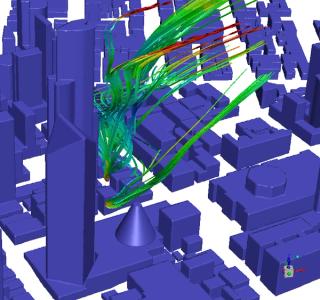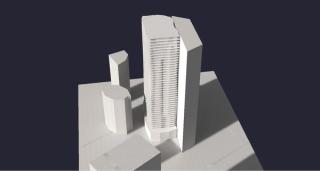
Metro Rail Emergency Ventilation Smoke Impact Studies
- Client Name
- Confidential
- Location
- Major Urban Centre, Australia

Challenge
To improve the safety of transportation tunnels, it is essential to be able to predict, evaluate and understand airflow patterns and dispersion of pollutants within populated areas during fire events and emergency tunnel ventilation.
SLR was engaged to assess the Emergency Ventilation Smoke (EVS) impact of a major urban centre metro rail project on the surrounding built environment. The study was performed using advanced Computational Fluid Dynamics (CFD) techniques combined with Air Quality Health Impact modelling.
Solution
EVS impacts on surrounding buildings and infrastructure were assessed by SLR for five inner city station precincts located in heavily built-up environments.
CFD modelling provided a unique tool to assess the effectiveness of a range of proposed tunnel ventilation design options and examine design parameters that may influence air quality. The modelling was performed using a detailed 3D digital terrain model of the project central business district area. Local wind roses were created for each station precinct site and pollutant dispersion was modelled for a number of worst-case meteorological conditions.
Impact
Based on the proposed emergency ventilation system design data currently available and the conservatism built into this tendering stage analysis, pollutant concentrations are anticipated to
be within acceptable levels once the design of the ventilation shafts is finalised.
During the detailed design phase, further modelling will be undertaken to incorporate refined smoke volumes and properties. There will be an opportunity to further reduce downwind pollutant concentrations by optimising stack dimensions and or smoke exhaust speeds.
